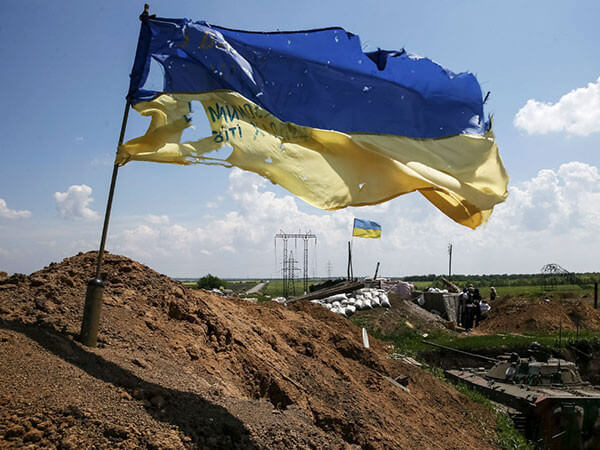Reuters (15 September 2017)
TALLINN (Reuters) - After years of bailing out Greece, the idea of letting more poorer states into the euro zone has sparked controversy, particularly in Germany, where Chancellor Angela Merkel is seeking re-election in two weeks time.
The backlash came after European Commission President Jean-Claude Juncker called on Wednesday for non-euro zone countries to quickly adopt the single currency so that the European Union can find new unity in the euro after Britain leaves in 2019.
Juncker promised to propose technical and financial help for the willing, quickly triggering concern from influential German members of the European Parliament, like the deputy chairman of the economic committee Markus Ferber.
Juncker’s call was interpreted by some in Germany as meaning the Commission would be lenient in assessing the readiness for the single currency of the mostly former communist and poorer eastern European countries like Bulgaria or Romania.
Greece, which adopted the euro in 2001, later turned out not to have been ready because of falsified deficit statistics. The country triggered a massive debt crisis in the euro zone and had to be bailed out three times by other euro zone governments.
“Euro for all EU countries? There are clear criteria and rules for joining. Greece can not repeat itself,” Ferber tweeted after the Juncker speech.
EU officials became concerned that the misreading of the Juncker speech in Germany could fuel support for populist and eurosceptic parties and Juncker aides took to Twitter on Friday to try and counter that effect.
They stressed that countries would only be allowed into the single currency if they met economic and governance criteria.
In German language-only tweets they also pointed out that some, like keen would-be member Bulgaria, already meet many, though not all, of the economic standards for entry.
European Commission President Jean-Claude Juncker in Strasbourg, France, September 13, 2017. REUTERS/Christian Hartmann
To adopt the euro, a European Union country has to have low inflation, interest rates and debt, a deficit within the EU limits, as well as a stable exchange rate, proven by two years spent in the Exchange Rate Mechanism II without severe tensions.
“The exchange rate of the Bulgarian Lev is absolutely stable to the euro since 2006,” Juncker’s head of cabinet Martin Selmayr tweeted. “The Inflation rate of Bulgaria is just at 0.2 pct and much lower than in the euro area.”
Addressing German sensitivity to debt, he tweeted: “German debt is almost 66 pct of GDP, more than twice as high as the Bulgarian one.”
Romania and Bulgaria meet all the nominal criteria to join the euro except the two-year exchange rate stability test in the ERM II and the compatibility of their central bank laws with euro zone requirements.
They are also far from meeting the “soft” criterion of real economic convergence with euro zone economies -- a factor that could prevent them getting the go-ahead for adopting the euro.
Countries outside the euro zone include Bulgaria, Croatia, Czech Republic, Hungary, Poland, Romania, Sweden, Denmark and Britain, but the last two have a formal opt-out from joining.
Others have a legal obligation to adopt the euro when they meet all the criteria, but there are no deadlines for that.
Commission Vice President Valdis Dombrovskis said Bulgaria had expressed to him a clear desire to join the euro zone. Romania has expressed a similar sentiment.
But some of the biggest and more wealthy non-euro members of the EU like Sweden, Poland or the Czech Republic and Hungary have no plans to adopt the currency in the foreseeable future, preferring to keep the economic flexibility provided by control over their own exchange rate.
Additional reporting By Peter Maushagen
No comments yet.
-
 PUTIN ALLY: NO LOGIC IN DEPLOYING U.N. FORCES ON RUSSIA-UKRAINE BORDER
Asia - Pacific
18.09.2017
PUTIN ALLY: NO LOGIC IN DEPLOYING U.N. FORCES ON RUSSIA-UKRAINE BORDER
Asia - Pacific
18.09.2017
- FAR-RIGHT PARTY LIKENED TO NAZIS TO SHAKE UP GERMAN PARLIAMENT Europe - EU 18.09.2017
- CHINA REBUKES JUNCKER 'PROTECTIONISM' Asia - Pacific 18.09.2017
- PAKISTANI PRESIDENT INVITES TAJIKISTAN TO JOIN CPEC'S TRADE ROUTE Asia - Pacific 18.09.2017
- SENIOR OFFICIAL OF ARMENIA DEFENSE MINISTRY MENTIONED IN ANOTHER SCANDAL The Caucasus and Turkish-Armenian Relations 18.09.2017
-
25.01.2016
THE ARMENIAN QUESTION - BASIC KNOWLEDGE AND DOCUMENTATION -
12.06.2024
THE TRUTH WILL OUT -
27.03.2023
RADİKAL ERMENİ UNSURLARCA GERÇEKLEŞTİRİLEN MEZALİMLER VE VANDALİZM -
17.03.2023
PATRIOTISM PERVERTED -
23.02.2023
MEN ARE LIKE THAT -
03.02.2023
BAKÜ-TİFLİS-CEYHAN BORU HATTININ YAŞANAN TARİHİ -
16.12.2022
INTERNATIONAL SCHOLARS ON THE EVENTS OF 1915 -
07.12.2022
FAKE PHOTOS AND THE ARMENIAN PROPAGANDA -
07.12.2022
ERMENİ PROPAGANDASI VE SAHTE RESİMLER -
01.01.2022
A Letter From Japan - Strategically Mum: The Silence of the Armenians -
01.01.2022
Japonya'dan Bir Mektup - Stratejik Suskunluk: Ermenilerin Sessizliği -
03.06.2020
Anastas Mikoyan: Confessions of an Armenian Bolshevik -
08.04.2020
Sovyet Sonrası Ukrayna’da Devlet, Toplum ve Siyaset - Değişen Dinamikler, Dönüşen Kimlikler -
12.06.2018
Ermeni Sorunuyla İlgili İngiliz Belgeleri (1912-1923) - British Documents on Armenian Question (1912-1923) -
02.12.2016
Turkish-Russian Academics: A Historical Study on the Caucasus -
01.07.2016
Gürcistan'daki Müslüman Topluluklar: Azınlık Hakları, Kimlik, Siyaset -
10.03.2016
Armenian Diaspora: Diaspora, State and the Imagination of the Republic of Armenia -
24.01.2016
ERMENİ SORUNU - TEMEL BİLGİ VE BELGELER (2. BASKI)
-
AVİM Conference Hall 24.01.2023
CONFERENCE TITLED “HUNGARY’S PERSPECTIVES ON THE TURKIC WORLD"









